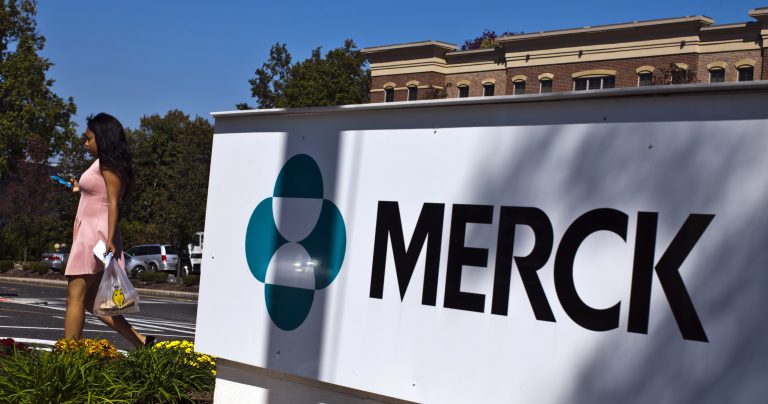A major U.S. pharmaceutical company has revealed a new drug to combat COVID-19 infections. With many people apprehensive about taking vaccines due to safety and other concerns, some experts think that a pill would be much easier to accept.
On Oct. 1, Merck and its partner, Ridgeback Biotherapeutics, announced that a study on their experimental pill targeting COVID-19 patients was found to have cut down hospitalizations and deaths among mild to moderately infected cases by 50 percent. Merck will soon be seeking approval for distribution of the drug from U.S. regulators.
According to the two companies, the drug, molnupiravir, performed so well during its late-stage trials that they stopped enrolling people into the study after talking with the U.S. Food and Drug Administration (FDA).
“With these compelling results, we are optimistic that molnupiravir can become an important medicine as part of the global effort to fight the pandemic,” Robert Davis, Merck’s CEO and president, said in a statement. He added that they will do everything they can to get the drug to the public as soon as possible.
Wendy Holman, the CEO of Ridgeback, expressed hope that molnupiravir will make a “profound impact” in the effort to control the pandemic. The orally administered drug inhibits coronavirus replication in the body.
Success
You are now signed up for our newsletter
Success
Check your email to complete sign up
The study was conducted among 775 individuals who had mild to moderate COVID-19 symptoms and a high risk of severe disease due to various health issues like heart disease, diabetes, and obesity.
Over seven percent of participants who were administered molnupiravir were hospitalized within 29 days, during which time no deaths were reported from this group. In the placebo group, 14.1 percent of the participants ended up being hospitalized or died by the 29th day. A total of eight people died in this group.
Roughly 10 percent of individuals from both groups reported adverse effects. 1.3 percent of the participants who received molnupiravir opted out of the treatment due to adverse events. In the placebo group, this number was around 3.4 percent.
The study was conducted in over 170 sites in countries like the United States, Japan, Italy, Guatemala, and Brazil. Earlier studies on the drug had shown that it provided no benefits to people who were diagnosed with severe disease.
“The ability to take what is a devastating disease like Covid-19 and potentially make it a manageable situation through what is a very convenient round of administration, which is an oral pill you can take at home, has important implications for the ability to manage the ongoing pandemic,” Merck CEO Davis said.
At present, one antiviral drug, remdesivir, has been approved for use against COVID-19 in the United States. Three antibody therapies that can aid a body’s immune system to fight the virus have been approved for emergency use.
Dr. Anthony Fauci, medical advisor to President Biden, called Merck’s results “very good news.” At a COVID-19 briefing, Fauci revealed that Merck had already informed them about the drug and stated that they will soon be submitting data for FDA approval. Merck calculated that it can manufacture enough pills for 10 million patients by year-end. Washington has already committed to buy pills to treat approximately 1.7 million people.
Meanwhile, shares of Merck spiked following the reveal of molnupiravir. In contrast, shares of vaccine manufacturers Moderna and Pfizer dropped. “We see modest perceived headwind to vaccine stocks such as MRNA (Moderna) if the market thinks people will be less afraid of COVID-19 and less inclined to get vaccines, if there is a simple pill that can treat COVID-19,” Jefferies analyst Michael Yee said in a client note.
















